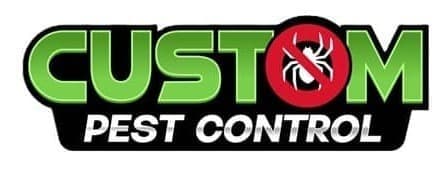Winter Seasonal Pest Service
December 5, 2022 - Troy Blair
The temperature is dropping and the winter season is here. Pests are seeking shelter, looking for food, and looking for water. As a response to the cold weather, pests may be more active in your home or business than they were during other seasons of the year. This can lead to re-infestation problems from insects that were previously controlled by you.

As the seasons change, so do the insects and rodents that try to take up residence in your house.
As the seasons change, so do the insects and rodents that try to take up residence in your Marshall County house. As temperatures drop and days get shorter, pests will look for a warm place to live. This can include your home! Pests will also come inside if it is too cold outside or if there is no food source outside. If it's too hot out or there isn't water available, pests like mice may find refuge inside as well.
The good news is that when you hire Custom Pest Control to take care of your home pest control needs throughout the season, we will thoroughly inspect all areas of your property—and find any signs of pests before they become an issue for you or your family.
Winter Seasonal Pest Prevention Services are performed During December, January and February
During this service you will receive:
- Sweeping down of Cobwebs around the perimeter
- Application of an insect Growth Regulator to prevent the pests from nesting during the winter.
- Applicaiton of liquid products around all doors, windows, electrical connections and pipes and cables.
- Bait application in approved Secured Bait Stations
- Granule Pesticides applied around your foundation, which is where most pests will reside during the winter.
- Rodent Stations placed to monitor, catch or kill as needed
- Winter Inspection for possible entry points of your home, which may need to be sealed
- ULV Application around perimeter of structure which helps prevent pests from occuring in the spring.
- Interior service as needed.
If you miss this service, you will put your home or business in danger of having an increased population of insects during the spring and summer months.
The winter months bring a new set of challenges when it comes to protecting your home and family from pests.
Winter is a great time to get your home prepared for pests. Because the temperatures are colder, pests are less likely to be seen outside during this season. However, it doesn't mean they aren't there! They're just hiding in warm places like attics, crawlspaces and walls.
If you've had issues with pests before, now is the perfect opportunity to take advantage of our Winter Pest Control Specials and get your property protected before any damage can happen!
Winter presents a special challenge when dealing with pest control.
The winter season poses a unique challenge when dealing with pests. The fact that it’s colder outside means pests are more likely to seek shelter in your home, where they can survive the harshest parts of winter. This is why we provide special winter seasonal service: to make sure those pests don't find their way into your house!
But even though there are fewer bugs around during the colder months, it doesn't mean there aren't any at all! Many cold-blooded animals like snakes and lizards actually become active as temperatures drop because they're searching for food. If you notice one of these critters on or around your property this time of year, be sure to call us immediately so we can send out our trained professionals to safely remove them from your premises—and keep them away through spring!
Box Elder Bugs get their name from their preferred habitat - box elder trees.
Box elder bugs are also known as maple bugs, shield-backed bugs and stink bugs. They’re a type of leafhopper that feeds on the sap of box elder, ash and basswood trees. Box elder bugs do not bite humans, but they can be a nuisance if they invade your home in large numbers.
Box Elder Bugs: Why They're a Nuisance in Winter Seasonal Service
Box elder bugs become active during winter as temperatures dip below freezing and will seek shelter inside homes to escape the cold weather conditions outdoors. During this time, you may notice an increase in activity around windowsills, doors and other areas where there's an accumulation of dead leaves or branches near your home's exterior walls. They'll cluster together on the sides of buildings where their protective shell provides protection against extreme temperatures and predators like birds or spiders that would normally eat them
Lady Bugs also thrive on box elder trees.
Lady bugs are known for being beneficial insects because they prey on pests of agricultural plants, such as aphids, mites and scale insects. Unlike many other insects which become dormant during the winter months, Eastern Gray Squirrels will often seek shelter in homes during the colder temperatures.
In many parts of the country, it is common to see ladybugs gathered around house lights at night. These winged creatures will fly away if you get too close but they can also fly right up to your face and land on you without causing any harm whatsoever!
Lady bugs are known for being beneficial insects because they prey on pests of agricultural plants, such as aphids, mites and scale insects.
Lady bugs are known for being beneficial insects because they prey on pests of agricultural plants, such as aphids, mites and scale insects. Lady bugs are also known as ladybird beetles, or lady beetles. They feed on soft-bodied insects such as aphids, mealybugs, thrips and scale insects.
Unlike many other insects which become dormant during the winter months, Eastern Gray Squirrels will often seek shelter in homes during the colder temperatures.
Unlike many other insects which become dormant during the winter months, Eastern Gray Squirrels will often seek shelter in homes during the colder temperatures.
This is when you may notice squirrels in your attic or outside on your roof. They can get into your attic through a hole in the roof, or even from inside an open garage door. Squirrels can cause structural damage to your home by chewing through wood and electrical wires.
Wasps that build paper nests or underground nests will die off before fall, but wasps that nest in hollow trees will survive through the winter by using the shelter provided by their nest.
Some wasps are beneficial to your garden and home, such as the paper wasp. These insects will die off naturally before fall, but you can help them out by making sure there's no moisture around their nests or holes where they might be hiding. There are other species of wasps that build their nests underground or in hollow trees; these will be able to survive through the winter by using the shelter provided by their nest. These insects will return next spring to finish building up their population and continue providing valuable pollination services for your plants.
During the cold months, cockroaches are drawn to warm areas like stove tops and ovens to survive the cold temperatures.
During the cold months, cockroaches are drawn to warm areas like stove tops and ovens to survive the cold temperatures. This leads them directly into your kitchen, where they can quickly become a nuisance if left untreated. In addition to being pests, cockroaches can also spread diseases by contaminating food with their feces or saliva.
Cockroaches will die in freezing temperatures, but they won’t go away on their own during winter—they need an intervention!
The good news is that there are many ways you can treat cockroaches without using harsh pesticides or poisons. You may find that one method works better than others for your unique situation—but no matter what treatment you choose, it’s important not to underestimate the importance of preventing access points for roaches in your home so that you don’t have issues again next year!
The spiders that do stick around for the winter don't typically strike out for adventure inside homes unless environmental conditions are difficult outside due to climate change or an unusually heavy snow storm.
Spiders are opportunistic, so if you leave your doors or windows open during the winter, a spider may seek shelter inside your home. They are also very good at finding their way back outside. The spiders that do stick around for the winter don't typically strike out for adventure inside homes unless environmental conditions are difficult outside due to climate change or an unusually heavy snow storm.
If you're worried about spiders finding their way into your house through open doors and windows this winter season, there's no need to fret! Spiders tend not to be interested in leaving their cozy nest on a warm evening when they could easily scurry across your threshold instead of taking advantage of free entry into your home as long as there is no food available outdoors.
Conclusion
In conclusion, you can rest easy knowing your home is protected from pests during the winter months. We hope that this article has given you useful information about how to keep your home pest free during the holidays and throughout the winter season!
